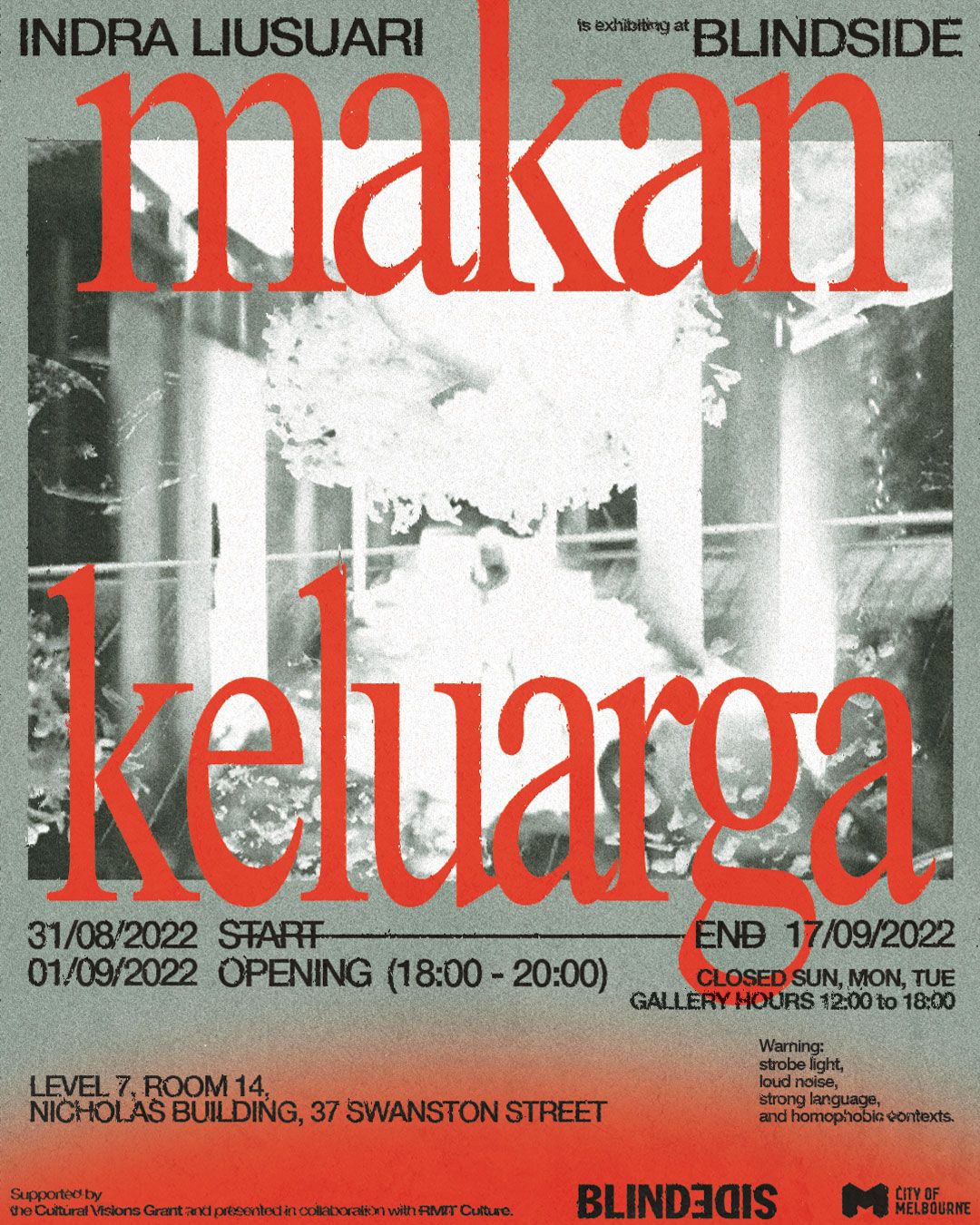

makankeluarga
Indra Liusuari
31 Aug–17 Sep 2022
makankeluarga manifests a traumatic experience of a loving familial relationship perishing in an instant after Liusuari’s decision to embrace their queerness and defy the controlled and monitored heteronormative life path that had been laid out for them.
The project screens a documented performance piece in a site-responsive installation, in which the space is transformed into an inexact memory of a family dinner at a lesehan years ago in their home country, Indonesia. The memory is one of the last pleasant ones before familial relationships of decades shattered abruptly. The interactive installation implements the colour red as its thematic colour to contrast symbolism of Eastern and Western cultures - red is the colour of passion, luck, and celebration in the East, but it is the colour of evil, bloodshed, and hedonism in the West.
The installation is also an homage to Liusuari’s creole heritage, in which they are an Orang Peranakan Tionghoa; an ethnoconvergence between Southern Chinese people that have settled for generations in Maritime Southeast Asia, creating a transculturation between Indigenous Indonesian cultures and Southern Chinese culture through decades of interactions - both peaceful and violent.
Liusuari also has applied their knowledge in architectural design from their three-year study in the field, taking a Brutalist approach to their installation, where untreated materials are accompanied by visible cords, cables, and gadgets to emphasise the rawness of the project and its almost-utilitarian context of its concept. Appropriating the Soviet's ethos of Khrushchyovkas, Liusuari rejects pomposity to play on the notion of their family’s deterrence of individuality and its expressions. Consisting of a floor dining set up, patrons must remove their footwear before interacting with it – prompted by a pair of sandals before a red line on the floor. Five red cushions surround a spread of banana leaves and broken plates adorned with joss papers.
This set up is an experiment in memorialising the “death” of the familial relationships through dissecting the ethnoconvergence of Liusuari’s culture by having a banana leaves spread showcasing unburnt joss papers shaped into floral forms on a tray of shards of plates that signify each one of their family members and the broken relationship they have with respectively. The incorporation of banana leaves and its uniquely fragrant aroma, aside from being an homage Liusuari is paying to their heritage, is also an examination of the natural decay of all living beings and the trace it could leave. In this case, despite the decay of their relationships with their family members, Liusuari still made many pleasant memories with their family - and they are translated as the sweet aroma exuded by the banana leaves as it dries and rots. The fifth cushion faces towards a metal framework sculpture, in which it has a projection surface where the documented performance film is screened on. The metal structure is a byproduct of hybridising the architectures of a gerobak, which is an Indonesian food cart, and ancestral shrines found in Chinese Folk Religion, a belief that Liusuari’s family and themself still practice as a cultural legacy as well as their gratitude for life.
The performance piece explores a traumatic incident Liusuari experienced. The six-minute piece is divided into three hidden acts; SATU, DUA, and TIGA - with multiple languages being used; Melayu Musi, a dialect spoken in their hometown, Bahasa Indonesia, the national language of their birth country, and English.
SATU explores the verbal abuse and further heartbreak Liusuari received from their siblings immediately after opening up about their failed first love. Repulsive text messages and degrading calls were constantly hurled at them once they had revealed that their first love experience was a homosexual one. The act finalises with Liusuari becoming desensitised to their abhorrence and deciding to disengage from the psychological violence perpetrated by their own loved ones.
DUA probes the mutual severing of ties between Liusuari and their siblings. Continuing the lesehan dinner concept, Liusuari represents these relationships with their siblings using stoneware plates. In this second act, Liusuari performs the act of relinquishing their siblings through two performances; a static and benign performance where Liusuari breaks the plates through multiple methods, and an anxious performance performed in an alleyway as an expression of their distress of their then forcefully repressed sexuality as well as crawling out to seek for a better life for themself.
Lastly, TIGA dissects Liusuari bidding farewell to having a controlled and hyper-monitored life. They express their emancipation in life through this act by grieving and reclaiming their torn familial relationships as a form of an unforgiving liberation for their contentment and tranquillity.
This project is supported by the Cultural Visions Grant and presented in collaboration with RMIT Culture.
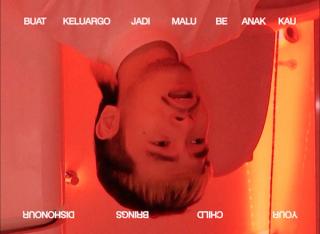

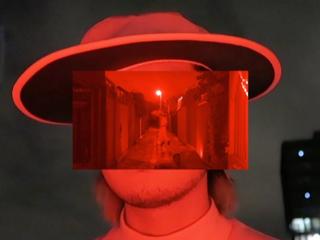

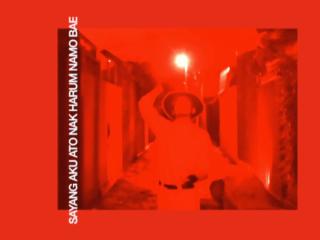

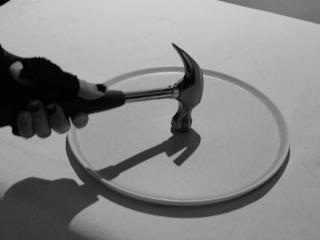



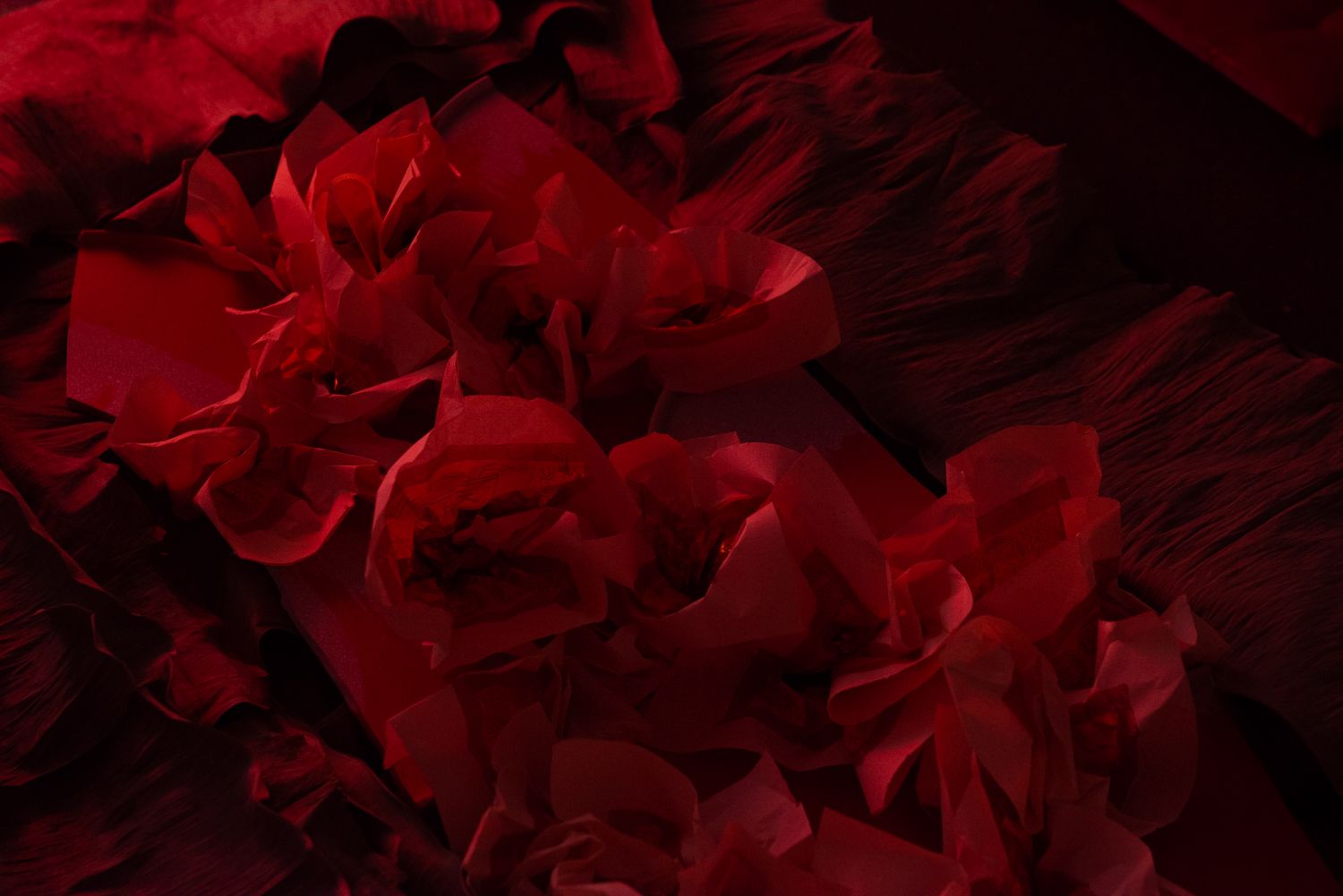

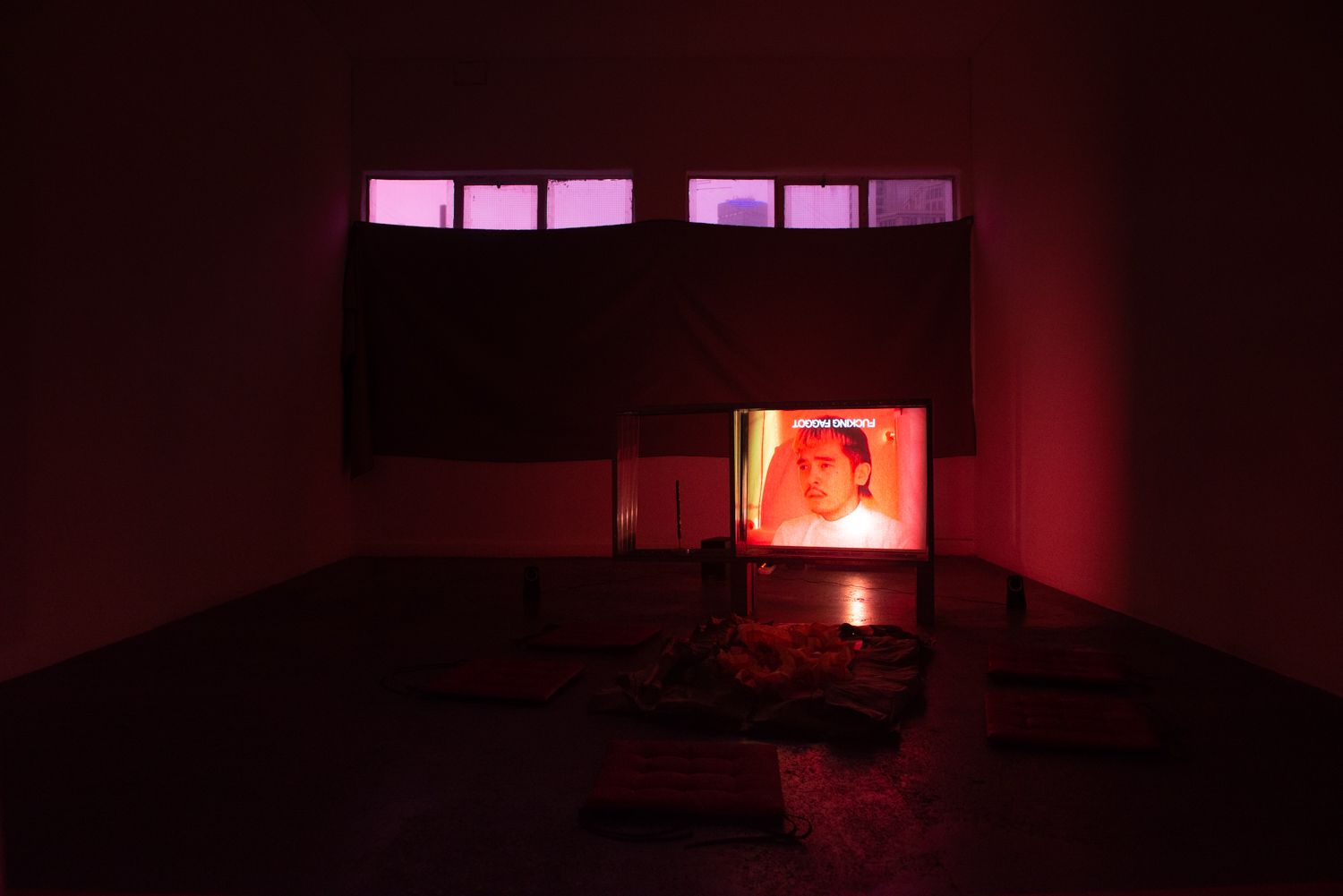

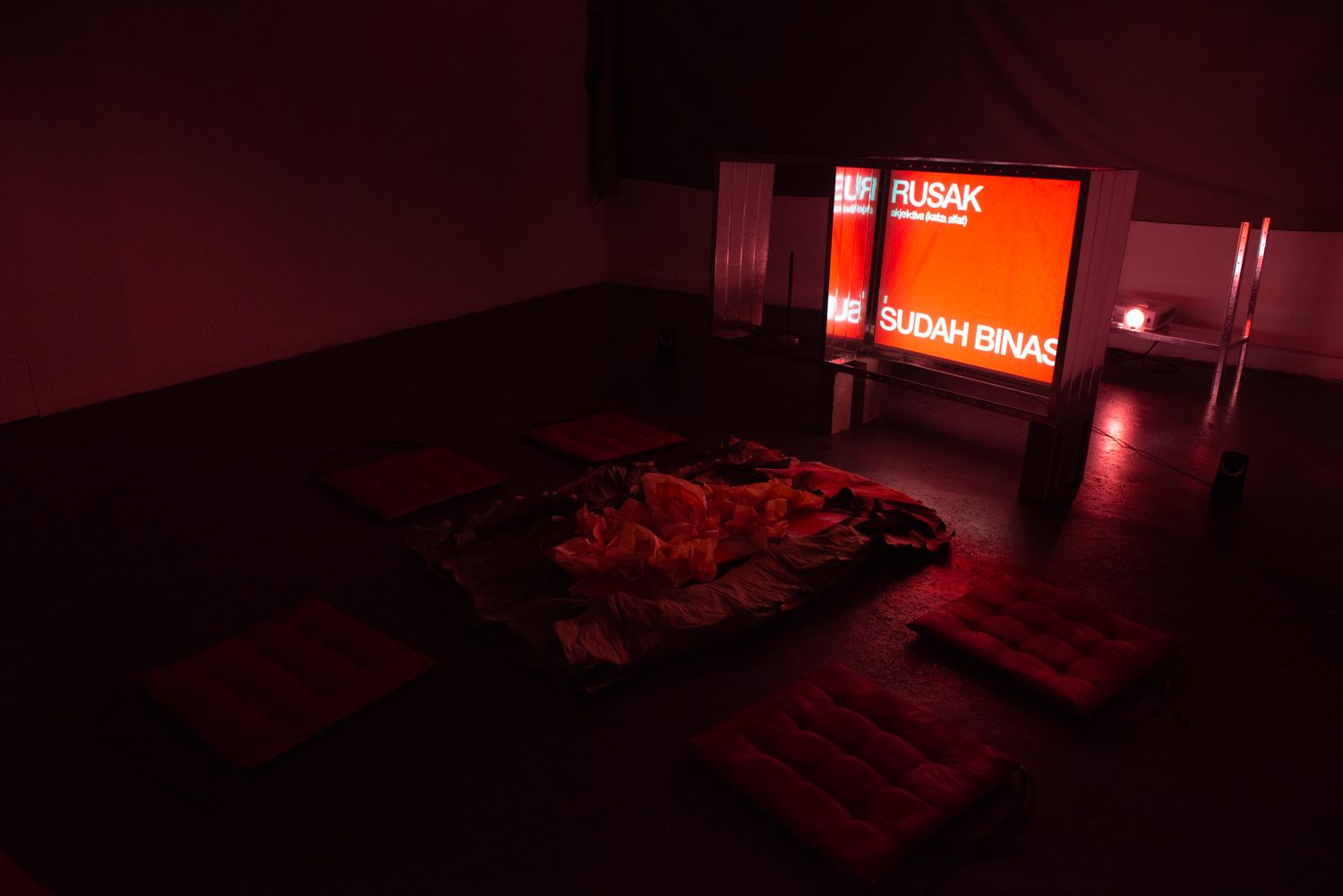

In makankeluarga, Liusuari explores the rupture of familial relationships, the grief that follows, and the liberating aftermath. The project is manifested through a recorded three-part performance piece screened in an installation based on Liusuari’s one nebulous memory and their pride in their cultural and sexual identities. In the performance piece, Liusuari is the protagonist in a surreal melodrama in which they ruminate over the psychological violence they received from two family members and having to endure an agonising journey forward.
CONTENT WARNING: This project contains loud music, strobing light, strong language, and alteration of the gallery space’s light to red, which some viewers may find disorienting.
Artwork contains homophobic contexts and possible allergens: banana leaves exude aroma and sap.
This program takes place on the land of the Wurundjeri people of the Kulin Nation. We recognise that sovereignty was never ceded - this land is stolen land. We pay respects to Wurundjeri Elders, past, present and emerging, to the Elders from other communities and to any other Aboriginal or Torres Strait Islanders who might encounter or participate in the program.
Indra Liusuari is an interdisciplinary artist whose practice includes audio-visual media, documented performance, installation, and publication. Conceptually, Liusuari is focused on critical discourses around the presence of white supremacy in the gay subculture and the gentrification of ethnic enclaves, which manifest via absurdist exaggeration and satirical self-exotification. Brutalist architecture and industrial design, audio-visual remnants of the 1990s and early 2000s, and the underground rave scene have become paramount influences in their practice. Liusuari has been awarded the Cultural Visions Grant from RMIT Culture, the Liquid Architecture’s Graduate Prize, and a First Class Honours for their research on problematising [gay] Asian men’s fetish for white homosexuals using Brutalism and Eurodance. Liusuari has presented works with Immigration Museum, Blindside, RMIT Culture, Pink Dot Singapore, West Space, and recently with Kunstraum Kreuzberg/Bethanien (DE) and unthaitled x soydivision Berlin.








